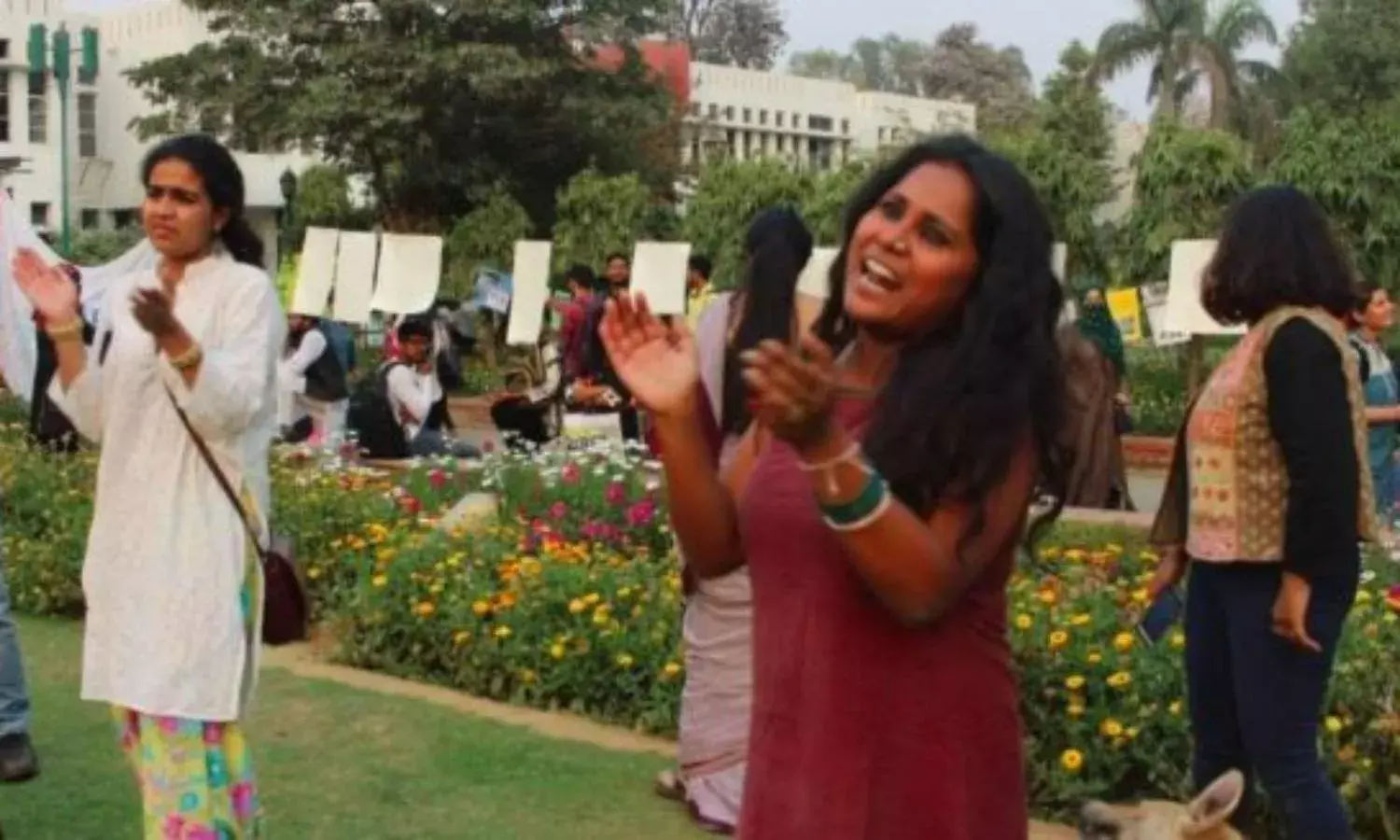
NEW DELHI: Students are not enemies of the state --- a group of youth activists and leaders came together to address an online press conference to unitedly protest against the series of arrests of young student leaders, including a pregnant young woman, claiming that the government had no evidence against them and had evoked Unlawful Activities (Prevention) Act (UAPA) to keep them in prison without recourse to bail.
The press conference was addressed by Aysha Renna (Student, Jamia Milia Islamia), Fawaz Shaheen (National Secretary, Students Islamic Organisation of India), Jignesh Mevani (MLA, Badgam, Gujarat), Kanhaiya Kumar (Leader, CPI), N Sai Balaji (National President, AISA), Salman Imtiaz (President, Aligarh Muslim University Students' Union) and Umar Faruq Quadri (President, Maulana Azad National Urdu University, Hyderabad). The young activists said that the protests against the Citizenship Amendment Bill-National Register of Citizens would continue regardless of the continuing arrests.
CPI leader and former JNUSU President Kanhaiya Kumar asked why persons responsible for heinous crimes not arrested, and instead young students doing little but expressing their right to dissent were treated like criminals. He said that the arrests today were a throw back to colonial rule in India, when protesting young freedom fighters were attacked and imprisoned by the authorities of that day.
“Let me remind us of two recent incidents. A 15-year-old girl was burnt alive by bullies in Mokama, Bihar. In Begusarai, a young girl was raped by her paternal uncle,” said Kanhaiya. Why have these persons not been arrested, why is there this urgency to arrest students, he asked.
On May 23, Delhi Police arrested two JNU students for their alleged role in the anti-CAA protests against the Citizenship Amendment Act (CAA). Both Devangana Kalita (30), and Natasha Narwal (32) are founding members of Pinjra Tod, the feminist collective.
Both the activists were arrested under Section 186 (Obstructing public servant in discharge of public functions) as well as Section 353 (Assault or criminal force to deter public servant from discharge of his duty) of the Indian Penal Code.
Even after being enlarged on bail, they were both immediately arrested by the Crime Branch on their alleged role in Delhi riots this February in a separate FIR under Section (Punishment for Rioting), 307 (Attempt to Murder) and 302 (Punishment for murder).
The arrest of Safoora Zargar, a 27-year-old student activist from Jamia Milia Islamia on April 10, 2020 has also caused a massive uproar in the country. Charged under UAPA, Zargar is locked in Tihar Jail. She was placed in solidary confinement with no regard for her pregnancy, and she continues to be a victim of online vitriolic trolling, Islamophobia, and misogyny.
“No evidence will be found against them and they will be acquitted, but this is a manoeuvre by the government to instill fear amongst the student bodies, even during the pandemic,” Kanhaiya said. He described the arrests as “fear-mongering tactics and revenge politics.”
Kanhaiya Kumar also spoke of the recent incident in which five paramedic staff members of State-level Hamidia Hospital in Bhopal fainted because of the cheap quality of their PPE kits. Connecting it with the plight of the poor migrants and labourers during the national lockdown imposed since March 24, Kanhaiya criticised the apathetic response of the government.
“Due to the pandemic, those who are employed are getting fired. The youth does not have jobs or even the possibility of financial stability. The entire society is going through a stressful time, but the government is more interested in arresting students under falsifiable narratives,”he said.
Contrasting the approach of the Delhi Police, Umar Faruq Quadri said that this was in contrast with the Hyderabad police that had shown restraint. N.Balaji said that there was a design to arrest students during the pandemic as this had limited access to lawyers. He said that the government was also trying to divert attention from its own failures.
Kanhiaya Kumar referred to the attitude of the government at the end of the media briefing in characteristic style, “Just like the proverb “Khisiyani Billi Khamba Noche,”, in India one can see “Khisiyani Government Vidyarthi Noche.”
Nevertheless, placing hope in the future and post-COVID world, the student and youth activists pledged to once again get back to the streets to protest against NRC-CAA.

